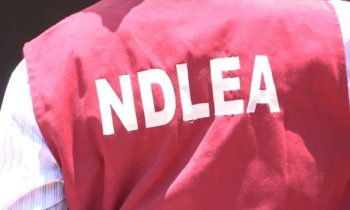

Despite the efforts of the Federal Government to attract investors both locally and internationally, NAFDAC’s recent action of banning sachet drinks may likely scare away intending investors and render millions of Nigerians jobless. An estimated N800 billion worth of investments, 5.1 million people and 25 companies are currently affected by the ban placed on producers of Sachet and PET drinks. A good number of companies such as international Distillers based in Ogun state have been shut down and their workers thrown into the unemployment market.
Addressing a press- conference at the weekend, the director general of the Manufacturing Association of Nigeria (MAN,) Segun Ajayi Kadir, along with other officials of Distillers and Blenders Association of Nigeria (DIBAN) and the Trade Union Congress (TUC), as well as the Nigeria Labour Congress (NLC) at the weekend appealed to the federal government to appeal to NAFDAC to save millions of jobs that its action has stagnated because of this ban.
According to them, the issue of underage children drinking those sachet drinks has to more to do with effective regulation, and therefore urged NAFDAC to enforce its regulatory activities which will deter underage children from drinking such things.
The director general said that the Association is deeply concerned about the ban imposed on spirit drinks in sachets and PET bottles less than 200ml. “More disturbing is the fact that adequate consideration was not given to the impact such move will have on the manufacturers, the workers, the citizenry and the economy.”
“To this end, our call is for government to carry out the following
1. Intensify its activities and support in the form of access control and tighter regulations, but not ban, which will be counterproductive;
2. That the ban be reversed immediately and replaced with regulations and access control such as: a) Establishment of licensed liquor stores/outlets by LGAs across the country; b) Suspected underage persons (under 18) should be required to show I.D to purchase alcoholic beverages as practiced in some other climes; c) Tighten enforcement by law enforcement agencies. d) Increased monitoring and compliance checks by NAFDAC, FCCPC and others to ensure strict product quality in terms of content and safety.
3. Encourage collaborative efforts to eliminate underage drinking or use of alcoholic beverages;
4. Enforce better regulations backed by informed policy and not a general ban on the production and sales of drinks in sachet and PET bottles; C. The sale of Alcoholic Beverages should be restricted to On-license and Off-license shops and ALGON should be strengthened to oversee the process;
5. Promote and protect the growth of local industries and jobs, tackling of fake, counterfeit, and unwholesome alcoholic beverages;
Key players present at this meeting will equally make their inputs on the subject matter”
Notwithstanding its earlier objections (to the immediacy of the ban), the Distillers and Blenders Association of Nigeria (DIBAN) participated in the preparation of a Memorandum of Understanding (MOU) which was then signed (with evident reservations) on the 18th of December 2018 between the Federal Ministry of Health, NAFDAC, CPC (now FCCPC) and Association of Food, Beverages, and Tobacco Employers (AFBTE) and Distillers and Blenders Association of Nigeria (DIBAN) to address the concerns raised at the time.
“The goal was to enlighten citizen on responsible consumption, by supporting the Federal Ministry of Health and NAFDAC to undertake the advocacy, messaging, training and education of the public. During this period DIBAN spent over one billion naira (N1, 000,000,000) (as at December 2023) on various campaigns to ensure zero consumption of alcoholic beverages by the underaged and to promote responsible use of alcoholic beverages among adults.”
“The campaigns involved heavy use of radio, billboards, and social media to propagate the Ministry of Health’s carefully crafted messages designed to cause a behavioral change in consumers. Working with NAFDAC, the players targeted young people below the age of 18 years who are not allowed by law to drink alcohol at all, and even the adults who are allowed to drink must drink responsibly. Adverts on radio and television were moved to late hours to prevent young people from being influenced”
“It must be explicitly stated: Moderation and responsible drinking promote good health. SMALL is good, if you buy small you will consume small. If you buy big you will consume big, this is not HEALTHY. Bigger sizes encourage consumption of bigger portions, while small sizes encourage portion control. If you take away small sizes, you are encouraging excessive consumption of alcoholic beverages. To go ahead with the policy based on perceived danger, without empirical information and not minding the consequences, is unfair to the industry operators, the thousands of workers that will lose their jobs and damaging to the Nigerian economy




